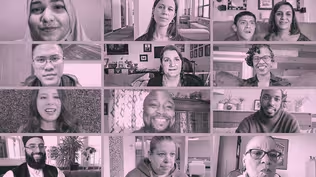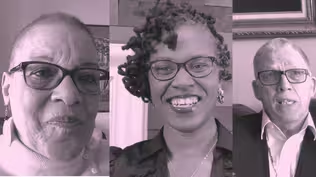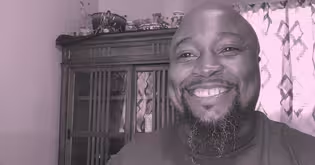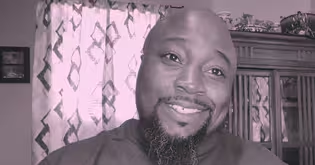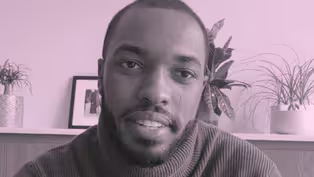
Shawna Murray-Browne | Decolonizing Mental Health
Special | 4m 24sVideo has Closed Captions
Shawna Murray-Browne’s quest to help BIPOC access ways of nurture, care, and healing.
Before Shawna Murray-Browne’s brother was murdered, she dreamt about it. It was a residue from the trauma of seeing so many Black men being killed around her. This turning point in her career as an integrated psychotherapist made her focus on empowering communities of color to access ways of nurture, care, and healing, that the racist-capitalist society keeps away from them.
Problems playing video? | Closed Captioning Feedback
Problems playing video? | Closed Captioning Feedback
Funding for Mysteries of Mental Illness is provided by the Corporation for Public Broadcasting, Johnson & Johnson, the American Psychiatric Association Foundation, and Draper, and through the support of PBS...

Shawna Murray-Browne | Decolonizing Mental Health
Special | 4m 24sVideo has Closed Captions
Before Shawna Murray-Browne’s brother was murdered, she dreamt about it. It was a residue from the trauma of seeing so many Black men being killed around her. This turning point in her career as an integrated psychotherapist made her focus on empowering communities of color to access ways of nurture, care, and healing, that the racist-capitalist society keeps away from them.
Problems playing video? | Closed Captioning Feedback
How to Watch Mysteries of Mental Illness
Mysteries of Mental Illness is available to stream on pbs.org and the free PBS App, available on iPhone, Apple TV, Android TV, Android smartphones, Amazon Fire TV, Amazon Fire Tablet, Roku, Samsung Smart TV, and Vizio.
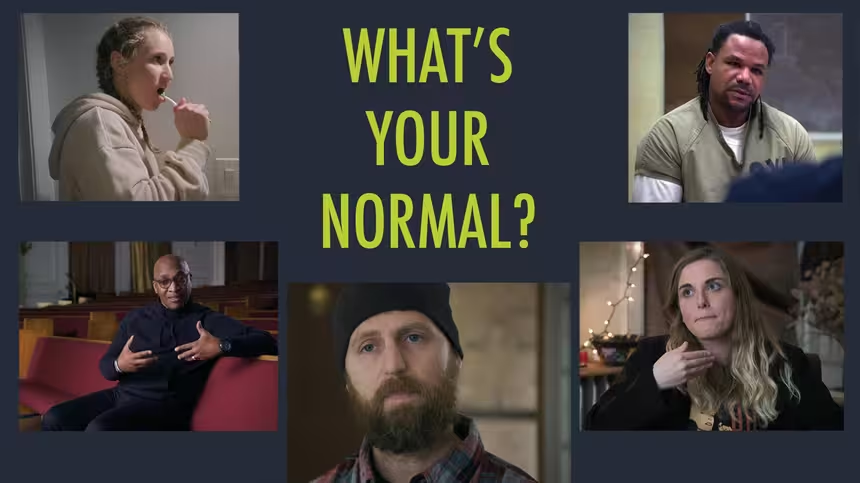
Join the Campaign
Share your story of dealing with mental illness through textual commentary, a still image, a short-form video — however you feel most comfortable — using the hashtag #MentalHealthPBS on social media.More from This Collection
The Decolonizing Mental Health series dismantles the racism that underscores the mental healthcare industry. By focusing its gaze on the transformative work of therapists and individuals of color, it calls for redressal of the ways in which we define psychiatric illness and health.
Lloyd Hale | Part 2 | Decolonizing Mental Health
Video has Closed Captions
Lloyd Hale’s journey from being a convict to a peer support specialist living in recovery. (6m 1s)
Lloyd Hale | Part 1 | Decolonizing Mental Health
Video has Closed Captions
Lloyd Hale’s story of teenage schizophrenia and the lack of mental health support. (4m 46s)
Idris Mitchell | Decolonizing Mental Health
Video has Closed Captions
How Idris Mitchell’s bipolar disorder put him in an eternal pursuit of beauty and joy. (5m 5s)
Providing Support for PBS.org
Learn Moreabout PBS online sponsorship(soft instrumental music) (laughs) - My name is Shawna Murray Browne.
I am a native Baltimorean.
I'm an Integrative Psychotherapist.
I'm a Liberation-Focused Community Healer.
My work is to help Black folk and those that care for them remember how to heal themselves.
I work from the premise that Black folks especially, and the Indigenous folks and other folks of color, come from a lineage history of having natural ways of caring for, of nurturing, and of healing.
Systems or -isms like racism and capitalism have made money off of our ongoing oppression and us not knowing that we have these innate powers.
I could say individually, our reaction to and the generational harms that have been passed on and has transformed into a culture, not even having the ability to ask the right questions to know how to gain access to this information.
The way that we've been trained is so Eurocentric and is grounded in Eurocentric values.
It makes sense that even the practitioners would feel like, "If I could fix the thing, then it would be better."
In the beginning, I was just using the usual evidence-based practice models, but I felt that it was consistently missing the mark based off of what I was hearing from folks within the community.
The turning point for me would be when my brother was murdered.
He was diagnosed with paranoid schizophrenia while he was incarcerated.
(music intensifies) I had dreams about my brother being murdered before he actually was, and I thought that it was residue from seeing so many hashtags of Black men and women and children being killed.
And so the first part of that is that there is seldom space in mental healthcare and the way that we are addressing these traumatic experiences to contend with the multiplicity of experience.
After I returned to work after grieving my brother, and what I felt as a professional was that I had to make a decision of my profession or my personal life and family and lived experience, or how I was gonna advocate against the system on behalf of my brother.
I had this really challenging experience of feeling that the mental health system was not created for Black folks that were actually enduring systems of oppression, because it didn't allow me to show up as my full self and it required that I dehumanize myself, to treat myself as an object, in order to hold space for the folks that I was serving.
But I did decide that I would be out of alignment, out of right relationship, if I did not use my voice to talk about the harm and the system of harms done to my brother.
And so that early stage experience of having to make the decision and making it out of fear while being surrounded by professionals who did not know how to engage with me, their colleague, their therapist.
They are the instructors.
That's when I started to shift and decide that I was not going to be silent about how the culture of mental healthcare permeated and upheld systems of racism and white supremacy by virtue of the way that we're trained.
How do we ensure that what's happening in the therapy space is actually raising critical consciousness?
We can advocate.
We can be anti-racist in our individual practice, and we can do that in a way that will illicit a level of individual success or individual freedom for the folks that we're holding space for.
(soft instrumental music continues)

- Science and Nature

Explore scientific discoveries on television's most acclaimed science documentary series.

- Science and Nature

Capturing the splendor of the natural world, from the African plains to the Antarctic ice.












Support for PBS provided by:
Funding for Mysteries of Mental Illness is provided by the Corporation for Public Broadcasting, Johnson & Johnson, the American Psychiatric Association Foundation, and Draper, and through the support of PBS...
